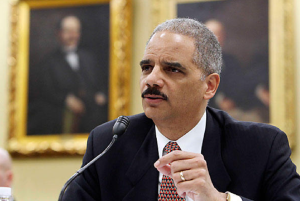Subtlety in general is a hard sell for those making and enforcing policy.
Being “tough on drugs” and “tough on crime” is a stance that many, perhaps most, Americans find both comforting and a no-brainer.
The prospect seems straightforward enough- establishing and enforcing tougher drug laws dissuades dealers from dealing and users from using, meaning people use fewer drugs and society improves.
The glaring problem with that math is that America has some of the strictest anti-drug laws in the developed world (and much of the developing world), and we still do a lot of drugs.
And I mean a lot.
According to pretty much every single study done on the subject, we use more tobacco per capita than virtually any other nation; we’re way up there for alcohol; we use way more cannabis than virtually every country on the planet (beaten only by Papua New Guinea, barely); we do tons more cocaine than virtually any other nation (beaten only by Spain, barely) and our abuse of prescription drugs is astronomical.
There’s no one even close.
The USA uses more than 80% of all painkillers on the globe.
 Those numbers are even though we imprison way more people than the rest of the world.
Those numbers are even though we imprison way more people than the rest of the world.
We’re number one in incarceration rates per capita.
To put it in perspective, according to the International Centre for Prison Studies and the metadata they compile, China incarcerates between 120-170 people for every 100,000.
The United States incarcerates… 716 per hundred thousand.
During the height of the War on Drugs in the 1980s, mandatory minimum sentencing guidelines were introduced all over the country.
Since 1980, incarceration rates in the United States have increased by 800%.
In 2003, Attorney General John Ashcroft reaffirmed the national commitment to tough drug law by instructing federal prosecutors to charge “the most serious, readily provable offense” at their disposal- throw the book whenever possible.
Between 2003 and today, incarcerations did indeed increase virtually every year, as did the rates of drug abuse, both legal and otherwise.
Now we find ourselves in a position where we incarcerate our citizens at a rate that’s at least four or five times higher than China, a place we consider a fairly enthusiastic violator of human rights.
We find ourselves doing this even though it either doesn’t help the national drug problem at all or makes it worse.
We find ourselves doing this disproportionately to people of color, chiefly black and Hispanic people.
As all that is the case, however counterintuitive it may seem, it’s looking a lot like getting “tough on drugs” doesn’t work.
For what it’s worth, based on my (legal) experience, this is no surprise at all.
Politics and everything else aside, when someone is dealing or doing drugs, the prospect of a mandatory punishment doesn’t even really enter their thinking.
Contrary to the common conception of dope dealers as BMW-driving slicksters giving the first hit for free, the great, great majority of dealers I encountered in a legal capacity were dealing as a small-time sideline or to support their habit.
That was far more likely to be the case with dealers of cocaine, heroin, methamphetamine, and prescription drugs.
 When a dealer is busted with his supply and the portion earmarked for retail, getting 10 to 15 years minimum, it pretty much always plays out the same way.
When a dealer is busted with his supply and the portion earmarked for retail, getting 10 to 15 years minimum, it pretty much always plays out the same way.
I’ve seen it way too many times: dealer with a drug habit gets sent to prison where they have access to a lot of drugs; their time in prison hardens and educates them; to survive they’re forced to join a prison gang as often as not; when they come out they still have a drug habit, have a wealth of new criminal information and new gang connections and they’ve become virtually unemployable and angry.
If they spent 10 years behind bars, the taxpayers spent around $500,000 to imprison them.
It’s not exactly a model that’s conducive to rehabilitation.
In response to this dynamic, Attorney General Eric Holder recently cited the problems with mandatory minimums- black men are given sentences generally 20 percent longer than their white counterparts; prisons are 40% over capacity; America incarcerates a quarter of all people imprisoned on the planet; we have hundreds of thousands behind the bars- over half for drugs, and on and on.
His suggestion was for prosecutors to simply stop specifying the quantity of drugs involved in the arrest, thereby avoiding the triggering of mandatory minimums.
Beyond the apparent inherent unfairness of the system, Holder’s push to avoid triggering mandatory minimums also allows for case-by-case consideration.
Despite this distinction rarely being made when drug policy is discussed, there is a world of difference between the mule coerced into carrying drugs for someone else and the violent gangster orchestrating narcotic distribution with violence.
Anyone campaigning to end the practice of nonviolent employees and their brutal bosses receiving identical sentences seems to be on the right track.


The focus on alternatives to harsh punishment aligns with the goal of creating safer communities and reducing recidivism rates among offenders.
Addressing the over-incarceration issue by punishing criminals less harshly can lead to cost savings for the criminal justice system and reduce the burden on correctional facilities.
By encouraging less punitive measures, such as diversion programs and restorative justice, Holder’s message promotes a more compassionate and fair criminal justice system.